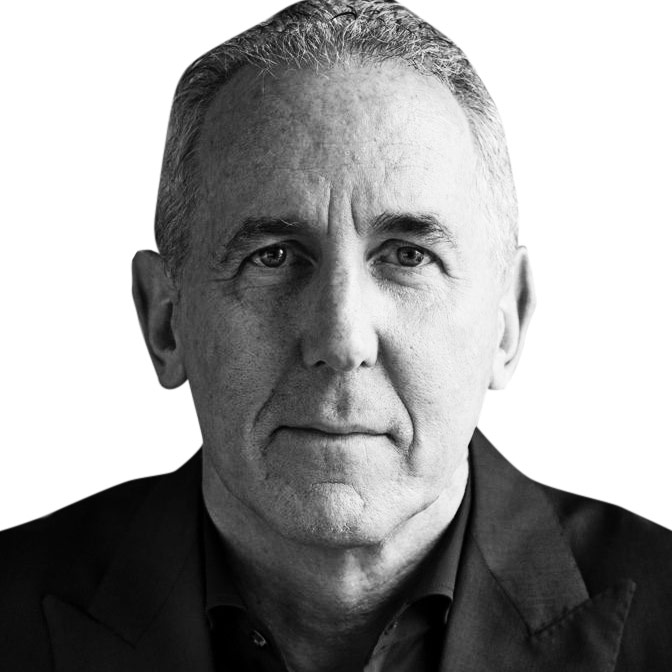How to heal from Trump.
It’s the $64,000 question: Why has Donald Trump spent the past month behaving in so many ways that seem transparently and irrationally self-destructive. To wit:
- Packing together 150 maskless supporters at the White House in the midst of an ongoing pandemic.
- Declining to wear a mask himself, even in public settings, and then contracting the coronavirus, along with dozens of others who work at the White House.
- Resuming large campaign events, maskless and not socially distanced, just days after his release from the hospital, putting ever more Americans at risk.
- Refusing to denounce white supremacy and QAnon.
- Refusing to guarantee that he will accept the outcome of the election and leave the White House if he is defeated.
Trump is the poster child and the Superspreader-in-Chief for a deeper illness in America. It afflicts men and takes the form of patriarchy and toxic masculinity—a system in which (mostly white) men promiscuously wield their privilege and power to control others.
To counteract his own feelings of insecurity and inadequacy, Trump’s primary defense has long been the grandiose insistence that “Only I can fix it.” It’s a zero-sum game. If he doesn’t “win” in every contest, real or imagined, then he sees himself as a loser. If he isn’t in total control, he feels weak and humiliated. If he isn’t dominating, he is succumbing.
This is what Trump believes it is to be a real man, and from that perspective, his recent behavior makes perfect sense. No disease is going to tell Trump what to do. He treats COVID as just another opponent he must squash—not by bringing the crisis under control for the sake of all citizens, but by minimizing and sneering at it himself. Likewise, no one is going to make him denounce the white supremacists who support him, and no defeat at the polls is going to force him to voluntarily give up the presidency, even if each of these stances make it more likely that he’ll lose the election.
Trump’s lack of empathy and absence of conscience have long given him the license to invent his own rules, define his own reality, defy norms, and break multiple laws. He lies without shame, and the more unacceptable he finds the facts, the more he dissembles. The volume of his lies has increased from five per day in the first year of his presidency, to 23 a day in the spring of this year, and almost certainly much higher during the past several months. In the 18 months that I spent with Trump to write The Art of the Deal, I never once saw him express affection or comfort to anyone, including his three young children. I saw no evidence that he ever had a single true friend.
Now, sensing defeat, Trump is doing what he’s always done under stress: doubling and tripling down on whatever fictional facts he wishes were true. But this time, his brazen tactics have produced exactly what they’re meant to defend against. He looks weaker, more vulnerable, and more out of control than at any time since his election. His poll numbers have plummeted.
ORDER ‘DEALING WITH THE DEVIL: MY MOTHER, TRUMP, AND ME’ HERE

This is toxic masculinity in action—the sense of entitlement, the embrace of privilege, and the wanton exercise of authority over others. It’s also marked by the rejection of any qualities that might be considered feminine, including gentleness, vulnerability, and empathy—the very qualities that Biden is relying on to distinguish himself from Trump.
For Trump, and for so many men desperate to hold onto control they fear is slipping way, the tactics include disparaging rather than encouraging others, reacting harshly rather than reasoning calmly, seeking certainty rather than struggling with complexity, and blaming others in a conflict, instead of first reckoning with their own responsibility. As the psychologist Terry Real puts it, “We raise boys to live in a world in which they are either winners or losers, grandiose or shame-filled, perpetrator or victims.”
The power that most men feel is fleeting and fragile, easily shattered by criticism, and uncushioned by the capacity for intimacy. Without deep relationships, including with themselves, too many men find themselves perpetually looking for ways to fill their inner emptiness and prove their worthiness.
The core struggle for men is not with one another, but between our own warring selves. Our youngest self—the child that lives on in us—can easily feel helpless and powerless. When that happens, our survival self instinctively rises up to defend us, often causing more damage in the process. It’s our calmer and more capable adult self that is capable of navigating gracefully between strength and vulnerability, confidence and humility, action and reflection, candor and compassion. But too often, we lose access to this adult under stress.
One of the key lessons I learned from watching and working with Trump on The Art of the Deal—and from grappling with the Trump in me—is that we don’t get stronger by disowning the weakest parts of ourselves. Nor do we become more secure by rationalizing, minimizing and denying our shortcomings, or projecting them onto others.
The reality is that all of us struggle at times with fear, insecurity, and a sense that we’re unworthy. These feelings are an ineluctable part of being human. The most profound shift in my own life occurred when I finally recognized that I no longer needed to battle against feelings I had spent so much of my life avoiding—most of all the fear of not being good enough. That is part of who I am, but it’s not all of who I am. Seeing that has allowed me to open my heart in ways I never could before. There is so much less to defend.
We can’t change what we don’t notice. The first challenge of a post-Trumpian, post-paternalistic future is for men to summon the courage and the humility to embrace their humanity, meaning the full range of their emotions, including the most uncomfortable ones. “When we fight against and/or hide from unpleasant or painful sensations and feelings,” the psychologist Peter Levine has written, “we generally make things worse. The more we avoid them, the greater is the power they exert upon our behavior and sense of well-being.”
We can run but we cannot hide, because wherever we go, there we are. Trump will never change or heal, but we men can. The more we accept all of who we are, the less compelled we become to defend our value, and the more energy we free up to care for others and the world we share.
Tony Schwartz is the co-author of “The Art of the Deal,” the founder and CEO of The Energy Project, and the author of the Audible Original book, “Dealing with the Devil: My Mother, Trump and Me.”


